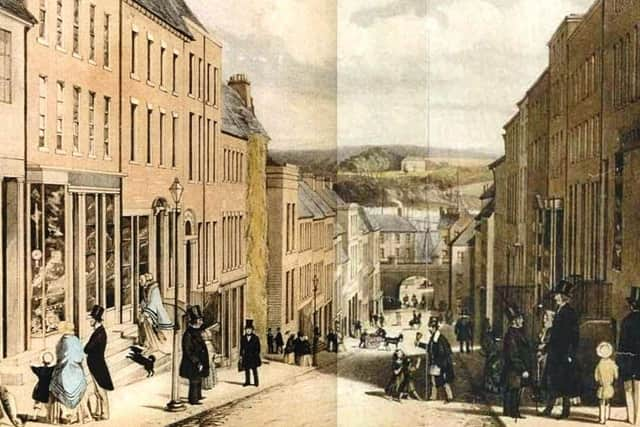The ‘Bang Beggars’ and policing the beat in Derry in the rare auld times


In Ireland, during the mid 1800s, the largest cities had their own police forces. These were the Dublin Metropolitan Police, the Belfast Borough Police and the Londonderry Borough Police.
The Derry force was established on May 22, 1849, replacing the ‘town watch’ and was governed by Londonderry Corporation.
Advertisement
Hide AdAdvertisement
Hide AdAt its inception, there were 21 constables - 13 for day and eight for night duties. They were all unarmed and overseen by the Police Commitee which looked after the day to day running of the force.


The police had sole jurisdiction within the city boundary up to what was referred to as the North West Liberties and borough policemen were required to reside within these boundaries.
Each policeman was given a street or district beat to patrol and was held accountable for the life and property within his beat and for the preservation of the peace and general good order during his time on duty.
There were three grades of constables with differing pay scales. In 1862, a 1st class constable received 12 shillings per week, with 2nd and 3rd class constables receiving 11 shillings. From their weekly pay, a contribution would be made to a police reserve fund which could be paid out to constables or their families during times of ill health.
Advertisement
Hide AdAdvertisement
Hide AdThe constables in Derry were known as the “Bang Beggars” by those who may have had some disagreeable dealings with the force.
My great great grandfather, Aston Jenkins, a farmer’s son from Ballybay, County Monaghan, joined the Borough Police on November 29, 1853.
He had previously been a constable with the Irish Revenue Police and based at Park Village outside Claudy. The Irish Revenue Police (1832 to 1857) were Excise and Revenue officers charged with disrupting poteen makers and were mainly barracked in the West of Ireland. The force had a policy of dismissing constables who got married. The thinking was that, if they did marry, their wives would give away information of upcoming operations through idle gossip!
And, so, on April 27, 1853, Aston was married to Letita Lyons, from Terrydreen, Banagher and, as a result, had to give up his position with the Revenue Police. Now unemployed, Aston and his new wife moved from the Banagher area to the Waterside, living first at Bonds Hill and then Old Hill (now known as Fountain Hill). Having become a constable with the Borough Police, Aston and Letita started a family. They eventually had three boys. William Alexander, Thomas and Robert who were all baptised at Carlisle Road Presbyterian Church.
Advertisement
Hide AdAdvertisement
Hide AdA reputation of disorderly conduct plagued the Borough Police during its existence. A number of constables were sacked or fined for drinking on duty or having abandoned their beat without permission. On October 8, 1858, Aston left his city beat to go to a horse racing meet at Ballyarnett. These events attracted very large crowds - between 15,000 and 18,000 people - who would travel to the city from all over Ireland. As a result of Aston’s conduct, he was duly fined 2 shillings and 6 pence by the Police Commitee.
On June 27, 1860, Aston died at the city infirmary aged 30 years. The reason for his death is unknown as death certificates were not issued at that time. A payment of £10 was made to his wife Letita from the Police Reserve Fund for her loss. She then moved back to her father’s farm at Terrydreen in Banagher. Two of her boys, Thomas and Robert, seemed to have died around the same time as their father which left William Alexander as the sole surviving sibling.
The demise of the Borough Police came in April 1869 after a visit to Derry by Queen Victoria’s son, Prince Arthur, which resulted in rioting between loyalists and republicians. Both the Borough Police and the Royal Irish Constabulary (RIC) tried unsuccessfully to separate the two sides. During the disturbances, the RIC opened fire, killing three members of the Apprentice Boys. A Court of Inquiry was launched and one of its findings was that the Borough Police was wholly inadequate for the suppression of riots.
The following year, the Constabulary Act (Ireland) Amendment Act 1870 was passed which abolished the Londonderry Borough Police. All police duties for the city were then handed over to the RIC.